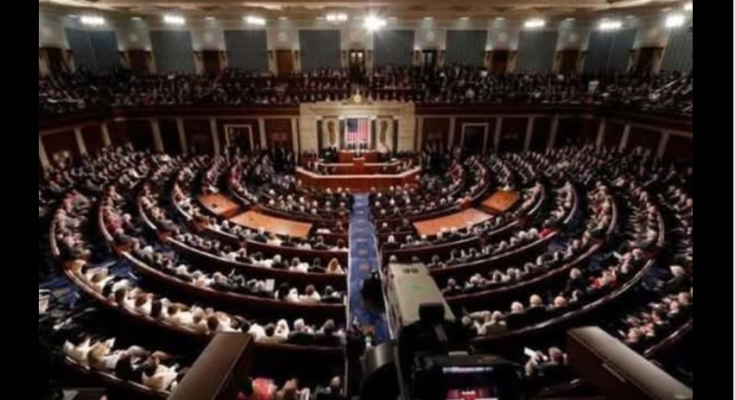The Fall of Bob Menendez: Corruption, Conviction, and Consequences
On July 16, 2025, former U.S. Senator Bob Menendez reported to FCI Schuylkill, a medium-security federal prison in Pennsylvania, to begin serving an 11-year sentence following his conviction on 16 counts of bribery, conspiracy, and obstruction of justice. The sentencing marked a dramatic fall for the 71-year-old Democrat from New Jersey, who had served in the Senate for nearly two decades and wielded significant influence as chair of the Senate Foreign Relations Committee.
His conviction in 2024 stemmed from a wide-ranging corruption scandal involving gold bars, envelopes of cash, luxury items, and even a Mercedes-Benz, allegedly exchanged for political favors that benefited New Jersey businessmen and foreign governments, including Egypt and Qatar. The case, one of the most serious political corruption scandals in recent Senate history, has had lasting political, legal, and ethical repercussions.
The Charges and Trial
Federal prosecutors built their case on an extensive trail of evidence. Menendez, they argued, accepted hundreds of thousands of dollars in bribes in exchange for using his political power to influence U.S. policy and government contracts. He was accused of leveraging his Senate position to:
-
Provide sensitive information to Egyptian officials,
-
Facilitate military aid and arms sales to Egypt,
-
Help secure lucrative deals for New Jersey-based businessmen with ties to the Middle East,
-
Influence federal investigations and prosecutions in favor of his benefactors.
One of the most damning elements of the prosecution’s case was physical evidence: gold bars engraved with serial numbers traceable to one of the businessmen, hidden envelopes filled with cash found in clothing with Menendez’s fingerprints, and photos of the luxury car allegedly provided as a bribe. The trial earned the former senator the nickname “Gold Bar Bob” in the media, a moniker that stuck throughout the proceedings and public commentary.
The jury deliberated for several days before finding Menendez guilty on all counts. The charges included:
-
Bribery under the federal bribery statute,
-
Honest services wire fraud,
-
Conspiracy to commit bribery,
-
Obstruction of justice, due to alleged attempts to influence or cover up parts of the investigation.
Menendez’s Defense and Appeal
Throughout the investigation and trial, Menendez maintained his innocence, claiming that the cash found in his home was drawn from personal savings and that the items in question were gifts or unrelated to official acts. His legal team argued that prosecutors failed to prove a direct quid pro quo—the standard required to convict a public official under federal bribery statutes.
Menendez also sought to delay his prison sentence, citing ongoing health concerns and his wife Nadine Menendez’s unresolved legal issues. Nadine is also facing bribery and conspiracy charges in connection with the case, but her trial is proceeding separately. The court denied his requests for postponement, finding them insufficient to delay the sentence.
An appeal is reportedly underway, with his legal team planning to challenge the court’s interpretation of bribery laws and the admissibility of certain evidence. However, legal analysts suggest that overturning the conviction will be a steep uphill battle given the strength of the government’s case and the comprehensiveness of the jury’s verdict.
Political and Public Fallout
The Menendez scandal has sent shockwaves through the political establishment in New Jersey and Washington, D.C. Once a fixture in the Senate and a key Democratic voice on foreign policy, Menendez had previously survived corruption allegations in a 2015 case that ended in a hung jury and mistrial. His re-election in 2018, despite that legal cloud, demonstrated both his political resilience and the deeply entrenched nature of machine politics in New Jersey.
But this time was different.
The breadth of the evidence and international implications—particularly involving foreign governments—made the case impossible to ignore. It raised uncomfortable questions about how closely U.S. foreign policy decisions are monitored and the ease with which influence can be bought, even at the highest levels of government.
The Democratic Party swiftly distanced itself after the conviction. Senate leaders, including Senate Majority Leader Chuck Schumer, called for Menendez to resign before his sentencing. He refused, arguing he deserved due process and asserting his innocence until all legal avenues were exhausted. However, his standing in the party and in Congress was effectively over.
In New Jersey, the political consequences have been equally seismic. Voters, already skeptical of corruption in state politics, expressed outrage. Several Democratic candidates and state leaders have called for comprehensive ethics reform and greater transparency in campaign financing and foreign lobbying disclosures.
Ethics Reform: A Renewed Push
Menendez’s case has prompted a renewed push for ethics reform in Congress. Lawmakers from both parties have introduced or revived proposals to:
-
Strengthen financial disclosure requirements for members of Congress and their families,
-
Restrict the acceptance of gifts, even from long-time friends or associates,
-
Increase transparency in foreign lobbying and influence operations,
-
Impose stricter penalties for officials found guilty of corruption-related offenses.
Several advocacy groups, including watchdog organizations like Citizens for Responsibility and Ethics in Washington (CREW) and the Project on Government Oversight (POGO), have called for the Senate to adopt binding ethics rules with real enforcement mechanisms, noting that internal policing of members has long been inadequate.
The scandal has also led to discussions about whether members of Congress should be barred from sitting on powerful committees, like Foreign Relations or Intelligence, if they are under federal investigation or indictment.
The Pardon Question and Future Outlook
One of the more unusual elements of Menendez’s post-conviction strategy has been his reported outreach to former President Donald Trump for a potential pardon. Though Menendez is a Democrat and has frequently criticized Trump in the past, he appears to have viewed Trump’s return to political prominence—and possible 2024 electoral success—as a lifeline. So far, those appeals have been unsuccessful, and Trump has made no public statements indicating a willingness to consider clemency.
Looking ahead, Menendez’s political career is almost certainly over. His name will now be etched in the annals of U.S. political scandals alongside figures like Rod Blagojevich and James Traficant. But the implications of his actions will likely extend far beyond his personal legacy.
With the public’s trust in government already fragile, the Menendez case serves as a potent reminder of the need for structural reform, transparency, and vigilance. It also underscores how even senior, long-serving elected officials are not immune from the consequences of corruption—at least when the system works as intended.
Conclusion
The conviction and incarceration of Bob Menendez mark one of the most consequential political corruption cases in modern American history. It’s not just a personal downfall, but a moment of reckoning for Congress and the systems meant to ensure accountability. Whether this moment leads to real reform or becomes just another headline will depend on the political will of lawmakers and the vigilance of the public.
Let me know if you’d like this in a PDF or formatted differently.



